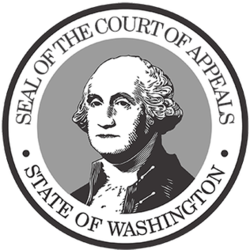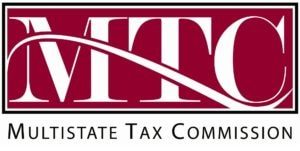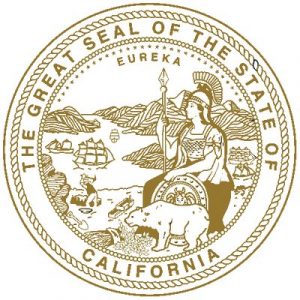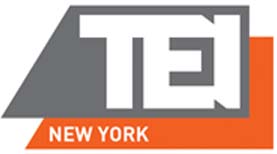 The Washington Court of Appeals held that Gartner, Inc.’s online research service was a digital automated service subject to the state’s retail sales tax and retailing Business and Occupation (B&O) Tax. Gartner, Inc. v. Washington Department of Revenue, No. 51637-3-II (Wash. App. Div. 2 Jan. 13, 2020). This decision addressed the scope of Washington’s “human effort” exclusion from the retail sales tax, the applicability of the “bundled transaction” and “true object” tests to offerings that contain taxable and nontaxable components, and the Internet Tax Freedom Act.
The Washington Court of Appeals held that Gartner, Inc.’s online research service was a digital automated service subject to the state’s retail sales tax and retailing Business and Occupation (B&O) Tax. Gartner, Inc. v. Washington Department of Revenue, No. 51637-3-II (Wash. App. Div. 2 Jan. 13, 2020). This decision addressed the scope of Washington’s “human effort” exclusion from the retail sales tax, the applicability of the “bundled transaction” and “true object” tests to offerings that contain taxable and nontaxable components, and the Internet Tax Freedom Act.
Articles Posted in Sales and Use Tax
Oregon Releases First Set of Draft CAT Rules
The Oregon Department of Revenue (DOR) has just released a series of eight draft administrative rules for Oregon’s new Corporate Activity Tax (CAT) that go into effect on January 1, 2020. In “The CAT is Almost Out of the Bag! Oregon Releases First Set of Draft CAT Rules,” SALT team members Carley Roberts, Robert P. Merten III and Afshin Michael Khazaeli examine the rules themselves, what this may mean for companies calculating commercial activity, and more.
TEI Silicon Valley Chapter’s State & Local Tax Day & IPT Joint Meeting
![]() Pillsbury SALT was proud to present TEI/IPT Silicon Valley’s State and Local Tax Day & IPT Joint Meeting on December 5! The team presented a 3/4-day seminar that focused on topics related to the State and Local Tax implications of the Tax Cuts and Jobs Act, the U.S. Supreme Court’s decision in Wayfair, and other hot topics in state and local taxation.
Pillsbury SALT was proud to present TEI/IPT Silicon Valley’s State and Local Tax Day & IPT Joint Meeting on December 5! The team presented a 3/4-day seminar that focused on topics related to the State and Local Tax implications of the Tax Cuts and Jobs Act, the U.S. Supreme Court’s decision in Wayfair, and other hot topics in state and local taxation.
“Interactive” Website Will Defeat P.L. 86-272 Immunity If the MTC Has Its Way
 The Multistate Tax Commission (MTC) is updating its Public Law 86-272 guidance, “Statement of Information Concerning Practices of Multistate Tax Commission and Signatory States under Public Law 86-272,” to address internet activities. This guidance was last updated in 2001. The latest draft guidance, dated October 15, 2019, provides examples of when the use of an “interactive” website will defeat P.L. 86-272 immunity, even if the company has no other contact with the customer’s state. Such examples include:
The Multistate Tax Commission (MTC) is updating its Public Law 86-272 guidance, “Statement of Information Concerning Practices of Multistate Tax Commission and Signatory States under Public Law 86-272,” to address internet activities. This guidance was last updated in 2001. The latest draft guidance, dated October 15, 2019, provides examples of when the use of an “interactive” website will defeat P.L. 86-272 immunity, even if the company has no other contact with the customer’s state. Such examples include:
- providing post-sale assistance to customers via either electronic chat or email accessed through a website link;
- soliciting and receiving online applications for branded credit cards;
- inviting viewers to apply for employment;
- contracting with a marketplace facilitator, whose marketplace offers for sale the company’s products via a website and maintains the company’s inventory;
- inserting internet “cookies” into the computers or other electronic devices of customers; or
- remotely fixing products via the internet and WiFi.
Having one of the listed internet activities—by itself—would cause a company that has limited its in-state activities to solicitation of sales to lose its P.L. 86-272 immunity according to the draft guidance. In effect, the MTC’s draft guidance would eviscerate P.L. 86-272 protection given today’s digital economy.
The October 15, 2019, draft “Statement of Information Concerning Practices of Multistate Tax Commission and Signatory States under Public Law 86-272” can be accessed here. More information can be found on the MTC’s web page.
NYS Tax Department: Changes to Sales Tax Collection Requirement for Marketplace Providers
New York State increased the sales tax economic factor presence nexus threshold from $300,000 to $500,000. The change is retroactive to June 1, 2019. Accordingly, marketplace providers with no physical presence in the state are required to register and collect New York sales tax if the provider’s gross receipts from sales of tangible personal property in New York is equal to or exceeds $500,000 and facilitated more than 100 sales of tangible personal property delivered in the state. The sales are computed over the past four sales tax quarters. It’s not clear what prompted the state to increase the gross receipts threshold of the economic nexus standard—there are no other changes to the definition of marketplace provider, marketplace sellers or to any of the liability relief provisions. (For more information, access the recently issued marketplace provider guidance here, and the prior guidance here.)
California Governor Vetoes Ban Against Tax Sharing Agreements and Signs New Law Requiring Certain Public Information for Disclosure
 There were two competing bills regarding tax sharing agreements (TSAs) this legislative session: SB 531 and SB 485. The former would have barred all TSAs at the local level as of January 1, 2020. The latter would not bar TSAs but instead would require the locality to report certain information pertaining to the agreement that would be made publicly available. On October 12, 2019, Gov. Gavin Newsom vetoed the bill that would have barred TSAs altogether and instead signed the other bill that requires publicly reporting certain information pertaining to the TSAs.
There were two competing bills regarding tax sharing agreements (TSAs) this legislative session: SB 531 and SB 485. The former would have barred all TSAs at the local level as of January 1, 2020. The latter would not bar TSAs but instead would require the locality to report certain information pertaining to the agreement that would be made publicly available. On October 12, 2019, Gov. Gavin Newsom vetoed the bill that would have barred TSAs altogether and instead signed the other bill that requires publicly reporting certain information pertaining to the TSAs.
Pillsbury SALT, TEI NY and “Sales Tax: Transformation in Action”
 Pillsbury is proud to partner with TEI’s NY Chapter to host their State & Local Chapter Meeting. Join Pillsbury SALT and TEI NY Chapter members for “Sales Tax: Transformation in Action.”
Pillsbury is proud to partner with TEI’s NY Chapter to host their State & Local Chapter Meeting. Join Pillsbury SALT and TEI NY Chapter members for “Sales Tax: Transformation in Action.”
In a presentation designed for sales tax compliance professionals at all levels, Sheila Rao, Senior Vice President, TEI NY Chapter, will present a step-by-step study of her company’s sales tax software implementation.
The Evolution of Software as a Service Taxes Post-Wayfair
(This article originally was published by Law360 on May 17, 2019.)
In the last year, several state legislatures have enacted laws and several state courts have published decisions on whether software as a service, or SaaS, is subject to sales and use tax. These developments impact many SaaS providers, especially due to the expanded nexus provisions that many states are enacting after the United States Supreme Court’s South Dakota v. Wayfair Inc. decision.1 The states have gone in different directions—Indiana enacted legislation exempting SaaS, while Iowa and Rhode Island began taxing SaaS. The Massachusetts Appellate Tax Board and the Pennsylvania Board of Finance and Revenue have both issued decisions clarifying the taxability of SaaS offerings.
State Income Tax Issues
Pillsbury attorneys speak on a number of tax-related issues at the TEI Mergers & Acquisitions Seminar on March 7. Topics include Corporate, Sales/Use Tax, State Income Tax, Federal Income Tax, Property/Transfer Taxes, Regulatory, and Employment and Labor.
 SeeSALT Blog
SeeSALT Blog

